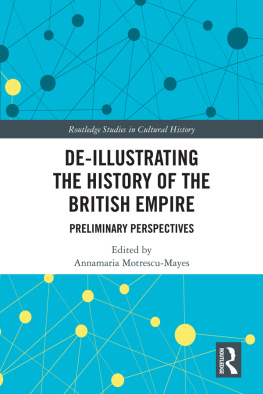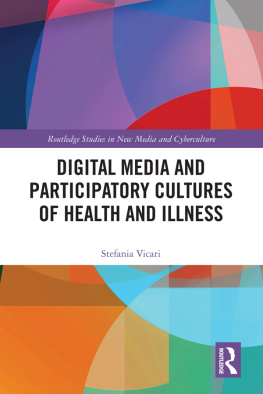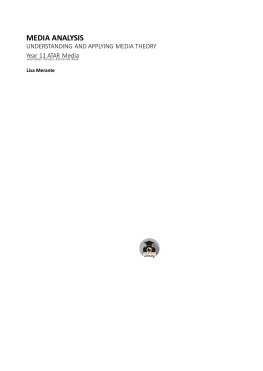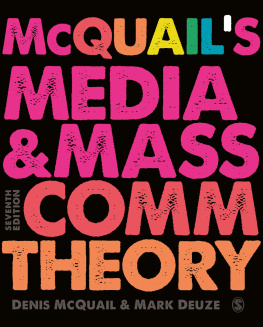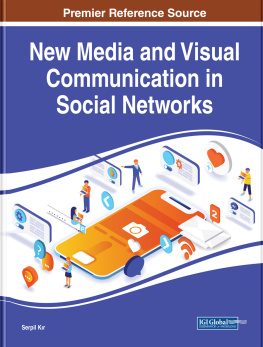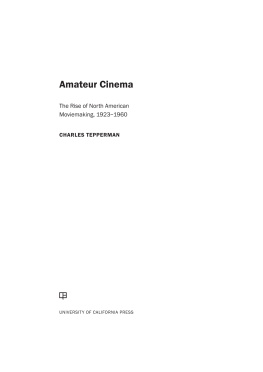
Amateur Media and Participatory Cultures
Amateur Media and Participatory Cultures aims to delineate the boundary line between todays amateur media practice and the canons of professional media and film practice. Identifying various feasible interpretative frameworks, from historical to anthropological perspectives, the volume proposes a critical language able to cope with amateur and new medias rapid technological and interpretative developments.
Conscious of the fact that amateur media continue to be seen as the benchmark of visual records of authentic rather than mass-media-derived events, Annamaria Motrescu-Mayes and Susan Aasman pay particular attention to the ways in which diverse sets of concepts of amateur media have now merged across global visual narratives and everyday communication protocols. Building on key research questions and content analysis in media and communication studies, they have assessed differences between professional and amateur media productions based on the ways in which the originators of an image have been influenced by, or have challenged, their context of production. This proposes that technical skills, degrees of staging and/or censoring visual information, and patterns in media socialisation define central differences between professional and amateur media production, distribution and consumption.
The books methodical and interdisciplinary approach provides valuable insights into the ways in which visual priming, cultural experiences and memory-building are currently shaped, stored and redistributed across new media technologies and visual channels.
Annamaria Motrescu-Mayes is an Affiliated Lecturer in new and digital media at the Department of Social Anthropology, University of Cambridge; Fellow and Tutor at Clare Hall; and a member of the Cambridge Digital Humanities Network and the Centre for the Study of Global Human Movement. She is the author of Visual Histories of South Asia (co-edited with Marcus Banks, 2017) and of British Women Amateur Filmmakers: National Memories and Global Identities (with Heather Norris Nicholson, 2018), and has written extensively on the theme of colonial amateur film practice and imperial studies. Motrescu-Mayes is also the founder of the Amateur Cinema Studies Network.
Susan Aasman is Associate Professor at the Media Studies Department and Director of the Centre for Digital Humanities at the University of Groningen. Her field of expertise is in media history, with a particular interest in amateur film and documentaries, digital culture and digital archives, web history and digital history. She was a senior researcher in the research project Changing Platforms of Ritualised Memory Practices: The Cultural Dynamics of Home Movie Making (20122016). Together with Andreas Fickers and Jo Wachelder, Susan has co-edited Materializing Memories: Dispositifs, Generations, Amateurs (2018).
First published 2019
by Routledge
2 Park Square, Milton Park, Abingdon, Oxon OX14 4RN
and by Routledge
52 Vanderbilt Avenue, New York, NY 10017
Routledge is an imprint of the Taylor & Francis Group, an informa business
2019 Annamaria Motrescu-Mayes and Susan Aasman
The right of Annamaria Motrescu-Mayes and Susan Aasman to be identified as authors of this work has been asserted by them in accordance with sections 77 and 78 of the Copyright, Designs and Patents Act 1988.
All rights reserved. No part of this book may be reprinted or reproduced or utilised in any form or by any electronic, mechanical, or other means, now known or hereafter invented, including photocopying and recording, or in any information storage or retrieval system, without permission in writing from the publishers.
Trademark notice: Product or corporate names may be trademarks or registered trademarks, and are used only for identification and explanation without intent to infringe.
British Library Cataloguing in Publication Data
A catalogue record for this book is available from the British Library
Library of Congress Cataloging-in-Publication Data
Names: Motrescu-Mayes, Annamaria, author. | Aasman, Susan, author.
Title: Amateur media and participatory cultures : film, video, and digital media / Annamaria Motrescu-Mayes and Susan Aasman.
Description: London ; New York : Routledge, 2019. | Includes bibliographical references and index.
Identifiers: LCCN 2018029789 (print) | LCCN 2018047758 (ebook) | ISBN 9781315396149 (ebook) | ISBN 9781138226142 | ISBN 9781138226142(hardback :alk. paper) | ISBN 9781138226159 (paperback :alk. paper) | ISBN 9781315396149(ebk)
Subjects: LCSH: Amateur films--Social aspects. | Video recordings--Social aspects. | Digital media--Social aspects.
Classification: LCC PN1995.9.S6 (ebook) | LCC PN1995.9.S6 M677 2019 (print) | DDC 384.55/8--dc23
LC record available at https://lccn.loc.gov/2018029789
ISBN: 978-1-138-22614-2 (hbk)
ISBN: 978-1-138-22615-9 (pbk)
ISBN: 978-1-315-39614-9 (ebk)
To Lisbon
The word amateur entered the English language with duelling definitions. Its first documented appearance in the late eighteenth-century harked back to the terms Latin roots, referring to one who loves or has a fondness or taste for something. But within two years it had acquired an additional meaning: one who cultivates anything as a pastime, as distinguished from one who prosecutes it professionally. Two related but quite different definitions: one categorical, describing a mode of engagement; the other relative, marking out the terms of distinction.
This definitional instability would persist and intensify, with amateur in the relative sense acquiring a disparaging connotation thanks to the steady growth of the professional classes in the nineteenth and twentieth centuries. This relativistic status was given a further twist by twenty-first-century challenges to hierarchies of expertise, with the wisdom of the crowd destabilizing the professional and, by implication, its reciprocal amateur while not necessarily relieving it of its negative connotations.
Categorical uses of amateur as one who has a fondness for something also experienced a shift in meaning. In this case, at least for some critics, environmental reconfigurations in the form of widespread distribution (especially the Internet, with its platforms and aggregators) have recast labours of love into inadvertent sites of exploitation. We upload our content and others make the profits. Amateur has grown to include naivet along with affection among its conditions, and in so doing, provoked an ongoing debate about the nature of pleasure and everyday agency.
The point is that amateur is a slippery term that is bound up in fast-changing cultural practices precisely why this book is so important. We can use the term amateur to describe the scientists who developed photography in the early nineteenth century; the masses who simply pressed the button and let Kodak do the rest; and contributors to digital platforms such as Flickr and Shutterstock, whose images may generate income for others or earn income for themselves. Amateurs, all but the meanings of the term differ significantly.
The digital turn has lowered the barrier to production across media forms, of course. Perhaps more profoundly, it has enabled global distribution and access. But these arent the only factors reshaping the media landscape and our inherited notions of amateur. Consider the ubiquity of smartphones and, with them, our production of still and moving images, sound and word How should we frame the media expressions that ensue? As basic assertions of existence, like the hand prints adorning prehistoric caves? As elements in our identity construction and assertions of group membership? As encounters with the world, as familiar as speech was in the past? Or, indeed, as related to the love of something at the root of amateurs definition?


